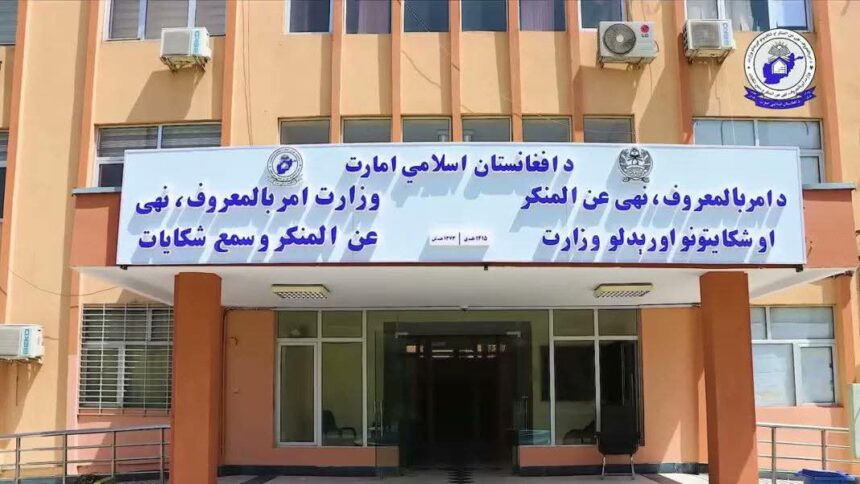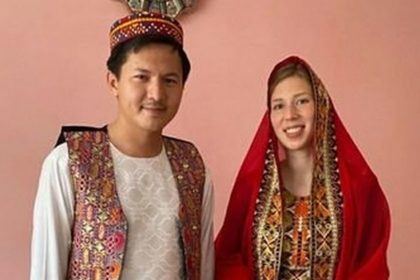RASC News Agency: In a stark illustration of the Taliban’s intensifying crackdown on cultural expression, civil liberties, and ideological dissent, the so-called Ministry for the Promotion of Virtue and Prevention of Vice announced the arrest of two staff members from Nama Media, a cultural and religious organization based in Kabul. The detainees were accused of promoting “heretical ideologies” including feminism and Christianity charges that reflect the regime’s increasingly hardline stance on gender rights and religious plurality. Speaking to state-controlled media on Monday, ministry spokesperson Saif-ul-Salam Khyber confirmed the arrests and revealed plans to soon broadcast what he described as the “confessions” of the detained individuals. One of the arrestees has been identified as Sayed Reza, originally from Maidan Wardak province and residing in Police District 6 of Kabul. The identity of the second individual remains undisclosed.
According to the Taliban’s statement, the core allegations include “inviting others to feminism” and “promoting Christianity.” Feminism a globally recognized movement advocating gender equality and the protection of women’s rights has consistently been demonized by the Taliban as a symbol of Western moral decline. Christianity, meanwhile, is viewed as an existential threat to the regime’s rigid interpretation of Islam, despite constitutional protections for religious minorities under previous Afghanistani governments. Since their return to power in August 2021, the Taliban have waged an unrelenting assault on Afghanistan’s civil society. Institutions once considered beacons of cultural, educational, and religious pluralism have either been dismantled or driven underground. Independent organizations particularly those promoting women’s empowerment, freedom of thought, or minority rights have been subjected to arbitrary closures, raids, and arrests. The arrest of Nama Media staff marks yet another escalation in this campaign of ideological suppression.
Rights monitors have documented a dramatic surge in the persecution of religious minorities, especially Shi’a and Ismaili Muslims. In regions such as Badakhshan, credible reports suggest that members of these communities are being pressured to renounce their beliefs under threat of violence. The Taliban, while projecting an image of religious unity, continue to impose a homogenous Sunni-Pashtun interpretation of Islam that effectively outlaws theological diversity and targets ethnic minorities under the guise of “national cohesion.” Journalists and media workers have likewise come under increasing threat. Numerous reporters have been detained under the vague accusation of “propaganda against the Islamic Emirate,” and many remain imprisoned in notorious detention facilities such as Pul-e-Charkhi and Bagram. The Taliban’s war on the press has turned Afghanistan into one of the most repressive environments for media professionals in the world.
The Ministry for the Promotion of Virtue and Prevention of Vice, headed by loyalists of Taliban leader Hibatullah Akhundzada, has emerged as a shadow policing agency with sweeping extrajudicial powers. Operating with little oversight and no legal accountability, the ministry exercises authority over every aspect of daily life from attire and employment to religious observance and ideological allegiance. Critics argue that its unchecked power is enabling a full-scale rollback of civil rights, and its methods often mirror those of authoritarian secret police forces in other historical theocracies. The arrest of two individuals for allegedly supporting feminism and religious freedom underscores the Taliban’s broader mission to erase intellectual, cultural, and ideological diversity from Afghanistan. By branding global norms of equality and freedom of belief as “heresy,” the regime is not only silencing dissent but criminalizing thought itself.
This latest action represents yet another blow to Afghanistan’s already fragile civil society and underscores the urgent need for the international community to reassess its muted and often complicit stance toward the Taliban’s repressive rule. In the absence of meaningful pressure, Afghanistan continues its descent into a dystopian state where even the mere suggestion of equality or tolerance is grounds for imprisonment.






